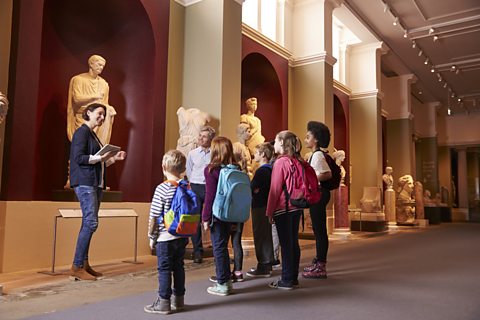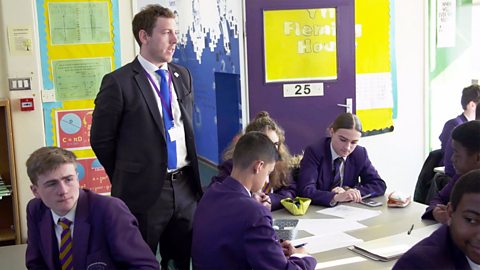
Many of us are holding on to tiny glimmers of hope and excitement that from September, we will be able to return to do what we as educators do best, and that is to teach our students.
Chloe Vethamony, a KS2 and 3 teaching, learning and assessment lead, looks ahead to the new academic year as teachers and students prepare to return to the classroom without Covid restrictions.
Any teacher will tell you that the last year and a half has undoubtedly been the most unexpected, challenging and at points, most stressful times of their teaching career.
It didnβt matter if you were a recently qualified teacher or a teacher with twenty yearsβ experience, nothing could have prepared us for the rollercoaster of a ride that we and our students had to go through during the recent Covid pandemic. Teachers and support staff found themselves in the odd predicament of taking each day as it came.
It was the opposite of how most of us had previously conducted our career. Instead of meticulous planning, instructing what lessons our pupils would be learning for each day of the whole term, we were frequently and frantically changing lesson plans as we went along.
At times we were unsure if the lessons we had planned would get us to the end of the day, let alone the end of the term, without us having to scrap them completely due to our classes or ourselves having been instructed to self-isolate.

Despite the unpredictable nature of the previous months, there is a feeling of quiet positivity and hope for the new academic year ahead. But it is only natural that some teachers and students are still feeling slightly anxious about what the new year will look like.
It is important to remember that numerous teachers and students have been denied a full school experience for the last 18 months. Personally, I do not know of anyone in the profession who has taught consecutively without a gap since the pandemic began. It feels like a long time since any of us, teachers and pupils, have had the standard teaching experience we are accustomed to.
Yet, despite this, many of us are holding on to tiny glimmers of hope and excitement that from September, we will be able to return to do what we as educators do best, and that is to teach our students.

School trips and no 'bubbles'
When thinking about the new term, I am very excited about the prospect of educational trips resuming. Opportunities to learn outside of the classroom are an integral part of teaching. School trips provide an end goal to learning and something for students to work towards.
Experiencing hands on, outside the classroom learning of topics that you have been studying helps to embed and enhance learning and provides young people with new experiences that they might not ordinarily participate in.
It widens studentsβ knowledge of the outside world, of different cultures and environments. School trips are an all-round enriching experience for all involved.
Teachers and students alike are also looking towards the new term with relief that class bubbles will now be a thing of the past. For the majority, it was always an inevitability that a class bubble might collapse, and everyone would have to leave school immediately and isolate at home.
For most teachers we lived with the βwhenβ not βifβ. We found ourselves in the most unpractical waiting game, unsure if our lessons would have adequate time to be completed.
Knowing that a whole entire year group will no longer be classed as one bubble enables teachers to plan more effectively and relax in the knowledge that our students will most likely be able to complete the main objectives and aims for our subjects without the constant disruption that we saw in the previous terms.

I am also looking forward to resuming face-to-face meetings with my colleagues. I have sorely missed our group planning sessions where the teachers come together and share ideas and collaborate on how to make the next term as engaging as the last.
There was just something missing when these planning sessions had to occur online. It is difficult for ideas to bounce off one person to another when you are sat alone in a room.
These face-to-face meetings are also a vital tool for teachers wellbeing as we seem to be more comfortable sharing worries and concerns when face to face, rather than over a computer screen. They offer a chance to share any problems, off load worries and receive support from our colleagues.
After a year of isolating from colleagues in meetings, I warmly welcome this reconnection.
Resilience of students
Unfortunately, despite all schoolsβ best efforts, lost learning has occurred. Whether this has been due to entire class bubbles having to isolate, or teaching and support staff absences, students have missed out on learning time. However, what we as teachers have witnessed is just how resilient our students are. They have shown a strength and commitment to learning that has been amazing and awe-inspiring to see.
Students have returned to classes and seem to miraculously pick up their learning from where they left off. They seem, despite initial struggles for some, to thrive when they are back in their natural classroom environment surrounded by their peers. They want to get back to learning and therefore we should see gaps in their education narrow at a quicker pace once the new term resumes.
How will schools and teachers adapt to this βnew normalβ in education?
We must remember that teaching should be innovative, engaging and most importantly ever-changing. Although it may be a scary thought, as teachers we should be constantly thinking on our feet. The past year and a half has shown us that we are more than capable of doing this. Some teachers had less than a day to devise new ways of teaching traditional academic lessons using modern, interactive technology for their students at home. And they did it, because they had to.
We faced immense pressure to adapt our whole method of teaching in record time and we succeeded. I hope that schools and teachers will continue to adapt their previous methods of teaching to incorporate more technological tools and fresh ways of delivering lessons in the classroom.
I also hope that teachers are not so hard on themselves, no longer getting so hung up on meticulous, rigid planning. We should no longer be afraid of change or not sticking to the rules. We have been taught our whole career that rules are there for a reason and we must stick to them. But wonderful things can happen when we sometimes donβt.
We faced immense pressure to adapt our whole method of teaching in record time and we succeeded.
If you're anxious about the new upcoming academic year, here are some tips and advice:
Use technology
Teachers should try and incorporate technology in their core subjects. Information Technology (IT) should not be something to fear or only taught as a standalone lesson. Ensuring that students and ourselves are confident in using IT will alleviate any stresses if remote learning should ever return. It is also essential that our students are proficient in IT to prepare them for the ever-changing modern world and to keep ourselves up to date with the transforming world of technology.
Support your colleagues
The past year has shown that competition between staff does not work: we must all help and support each other. It was amazing how my teacher friends from other schools and year groups rallied around to help other educators teach throughout the pandemic, offering advice and support. In this new academic year, discuss lesson plans with other teachers, explore ideas, share resources and support staff who are finding the new term slightly over whelming. Remember that not everyone will have the same confidence as you when it comes to returning to the classroom. Be considerate of those colleagues who will still want to maintain social distancing or wear a mask in school.
Be gentle with your students
The stresses of assessment and data can sometimes make teachers forget that pupils are humans too and not just a number. They too will need some nurturing in the new term. Many of them will have been dealing with their own anxieties and worries throughout the past year. Young people thrive on routine, and they have not had this for many months. Remember that they may need a little extra time to grasp new concepts in lessons, but with gentle encouragement and positive praise and support, they will flourish.
Take care of yourself
And finally, as the new term approaches it is important to look after your own wellbeing. Be kinder to yourself. Take your lunch breaks, leave work early on Fridays and make time for a quick chat with your colleagues in the staff room. The new academic year will be tough at times, and it will be completely natural to feel overwhelmed. Remember to slow down and make time for your own self care and seek for help from colleagues if you feel that you are struggling.

How to master your back-to-school routine. document
ΒιΆΉΤΌΕΔ Bitesize looks at what students can do to avoid a shock to the system on the return to school.

Five items to take you right back to the classroom. document
ΒιΆΉΤΌΕΔ Bitesize has put together a list of some of the items readers of a certain age scarcely went a week without seeing in the classroom.

Teacher Tips. collection
A series of short films featuring primary and secondary teachers sharing top tips and advice on everything from time management to helping disadvantaged pupils.
